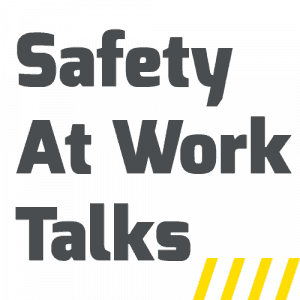 The latest episode of Safety At Work Talks is a return to the sequence of interviews with Professor Sidney Dekker. In April 2017, Dekker published a book called The End of Heaven which discusses suffering. This book has a very different tone from his previous books and is intriguing.
The latest episode of Safety At Work Talks is a return to the sequence of interviews with Professor Sidney Dekker. In April 2017, Dekker published a book called The End of Heaven which discusses suffering. This book has a very different tone from his previous books and is intriguing.
The breadth of the discussion was also surprising with concepts and references rarely talked about in relation to occupational health and safety, such as morality, Acts of God, train disasters and the Bible. If this sounds heavy, it is useful to follow the discussion that leads to this statement from Dekker:
“Safety Culture is the new Human Error”.
This latest episode is available at
Soundcloud: https://soundcloud.com/safetyatworkblog/safety-at-works-talks-episode-03
Podbean: https://safetyoz.podbean.com/


